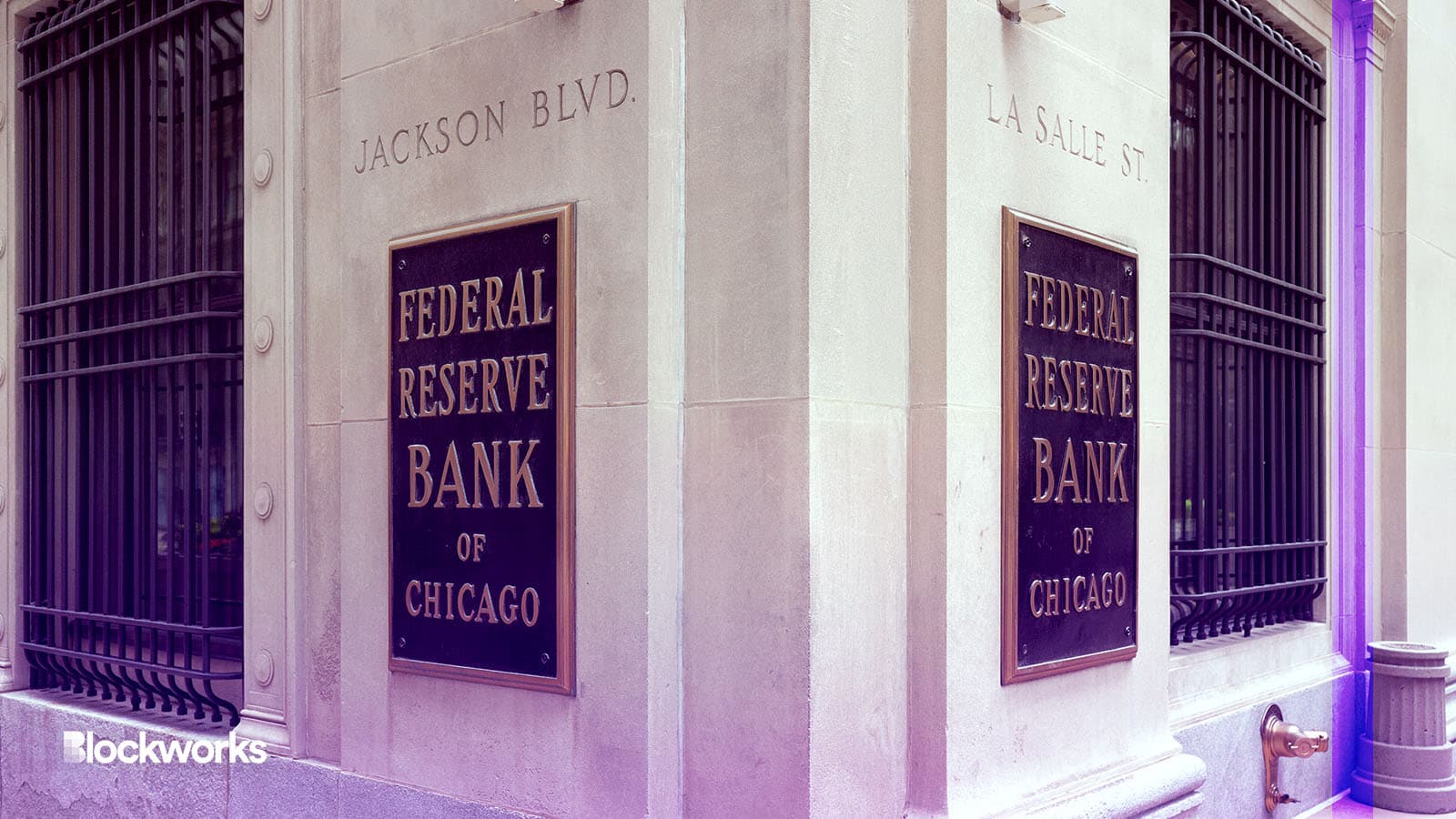Whales Caused Crypto Banks To Go Belly Up in 2022, Study Finds
Researchers at the Chicago Fed observed that platforms used customer funds for risky investments to generate promised high returns, and customers ran to avoid potential losses

Hendrickson Photography/Shutterstock, modified by Blockworks
A recent study uncovered that the 2022 crypto bank runs were predominantly sparked by whale account holders, including sophisticated institutional customers.
Large account holders with investments above $500,000 demonstrated the highest withdrawal rate at Celsius, researchers at the Federal Research Bank of Chicago found.
These customers proportionately withdrew a significant portion of their funds compared to other customer groups. Notably, about 35% of withdrawals originated from account holders with over $1 million in investments.
The study also noted that the platforms faced run risks as they permitted customers to withdraw funds at will while utilizing those funds for risky and illiquid investments, aiming to fulfill the promised high investment returns.
A notable example of such instability occurred during an unprecedented episode when FTX experienced a rapid withdrawal of 25% of customer investments within a single day.
“These episodes together formed a classic financial crisis in a novel setting that has raised urgent policy concerns,” wrote research assistant Radhika Patel and senior economist Jonathan Rose.
The study examined customer fund outflows from BlockFi, Celsius, FTX, Genesis and Voyager, but only focused on the breakdown of large account withdrawals specifically in the case of Celsius.
Celsius and Voyager saw significant outflows of 20% and 14% of customer funds respectively within 11 days following the collapse of the TerraUSD stablecoin. BlockFi experienced estimated outflows of $3.3 billion from June to Nov. 2022. FTX reported a notable outflow of 37%, with the majority occurring over just two days.
The researchers said BlockFi “appears to have been reduced to a shell of its former size,” as it navigated outflows worth billions during 2022. They identified exposure to Three Arrows Capital as a common factor and source of contagion among the examined firms.
“They used customers’ funds for illiquid and risky investments (e.g., in 3AC or the Anchor protocol) in attempts to generate the high returns promised to their customers,” they wrote. “In response to negative shocks, customers had an incentive to run in order to avoid taking losses that would be borne by others.”
The study concluded that the collapse of FTX exerted significant strain on Silvergate Bank and Signature Bank, leading to substantial withdrawals of deposits and ultimately resulting in their closure or failure in 2023. These events, coupled with the failure of Silicon Valley Bank, were identified as contributing factors to the recent banking turmoil.
That conclusion is at odds with other analysis. Adrienne A. Harris, superintendent of the New York State Department of Financial Services, testified in a House hearing on digital assets that the failure of Signature Bank was unrelated to its dealings with crypto firms.
The recent failure of First Republic Bank further belies the notion that shakiness in the banking sector is the result of flighty crypto depositors, since that bank had little to none.
Instead, some investors and the public recognize the rapid rise in interest rates by the Federal Reserve as a more significant contributor to the erosion of confidence in banks, particularly those with large exposure to long-term bonds procured during historically low interest rates in recent years.
Get the news in your inbox. Explore Blockworks newsletters:
- The Breakdown: Decoding crypto and the markets. Daily.
- 0xResearch: Alpha in your inbox. Think like an analyst.






